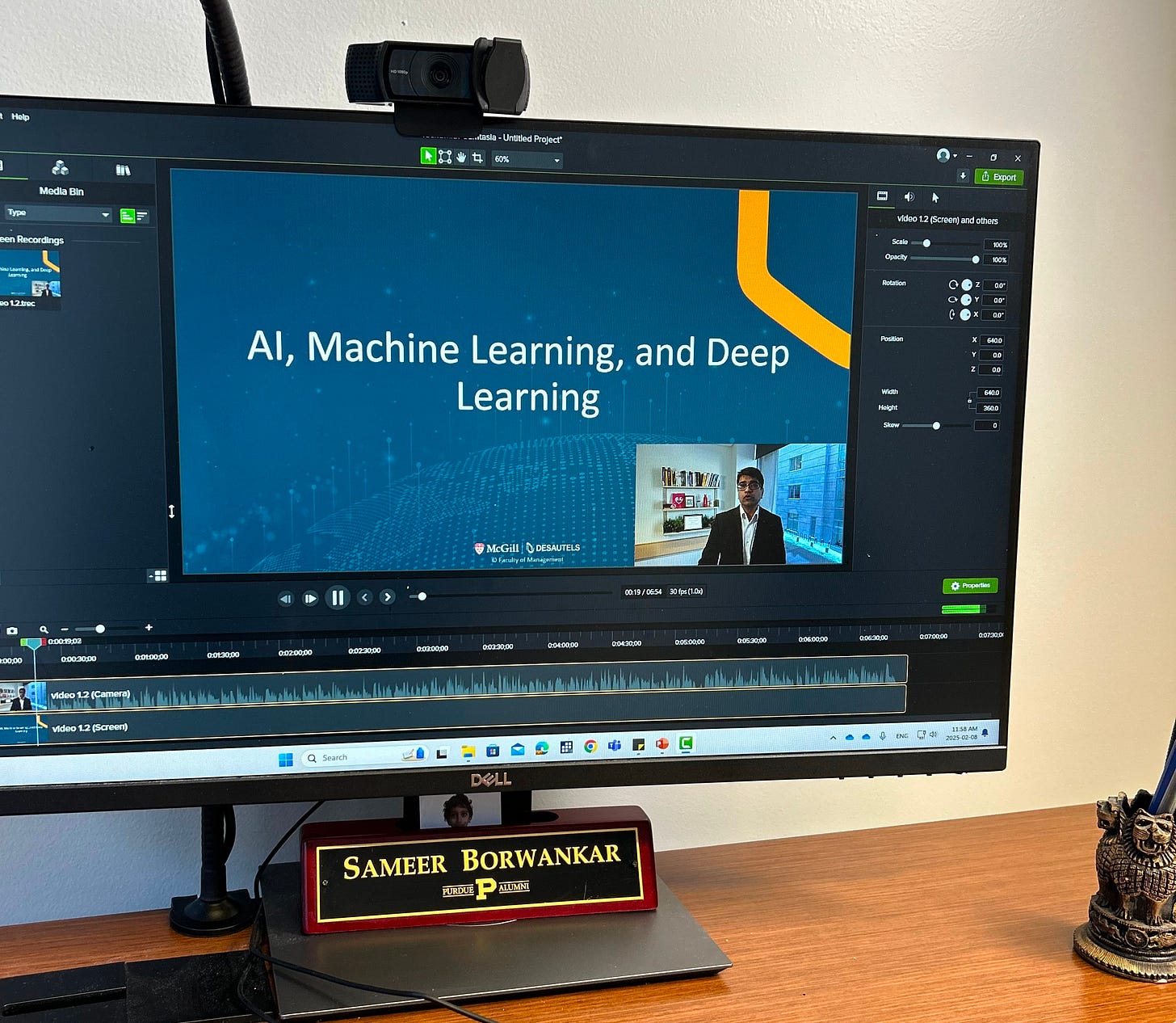Shrinking Space for Science and Ethics
AI and science policy are being shaped by forces that may limit progress and inclusivity.
Another challenging week filled with more concerning news (at least by my values). While I continue tracking new technologies for this newsletter, I can’t shake the image of many of my fellow countrymen being deported in handcuffs and ankle chains—on a military plane—from the richest country on earth. What’s even more disturbing is the lack of empathy shown by many who enjoy privileges and remain indifferent to such injustices. We also witnessed the re-hiring of an individual in the Department of Government Efficiency who had previously stated, “Normalize Indian hate.”
Balancing Act: AI Tech and Ethics
This week, I found myself thinking about AI technology and ethics—an age-old debate. However, on a personal level, with limited time and resources, I struggle to find the right balance between these two interconnected and important dimensions. For instance, Google recently announced the removal of its ban on using AI in weapons and surveillance—a complete reversal from the principles it set in 2018.
On the other hand, researchers at Stanford and the University of Washington have developed an open-source reasoning model for less than $50 in cloud computing credits, making their code publicly available (Source). This follows similar work by Berkeley researchers, who built a comparable model for under $500. As tech giants invest billions in developing the next cutting-edge AI, the rapid commoditization of reasoning models is a trend that needs close attention.
DeepSeek's rapid advancements are pushing OpenAI to accelerate the release of new models and features. One such announcement that excites me is OpenAI’s recent launch of Deep Research. With models like these becoming more accessible, the ability to generate groundbreaking ideas may start to matter more than the capacity to execute them.
Impact on DEI research (or research in general)
The U.S. National Science Foundation (NSF) is facing potential cuts of 50% in its workforce and over 60% in its budget (Source). The NSF plays a critical role in supporting scientific research and innovation, making these cuts deeply concerning for both the scientific community and the public. Researchers may need to prepare for a challenging road ahead—elections have consequences.
For example, a researcher studying how the brains of fathers change after becoming a parent may now face significant funding challenges. According to an NPR article,
But her research proposal contained the words "diverse" and "underrepresented," words that now appear on a list of hundreds of DEI-related terms that NSF is currently using to comb through tens of thousands of research grants.
I hope the coming week brings calmer and more positive news.
Interesting Super Bowl news:
Google remakes Super Bowl ad after AI cheese gaffe


